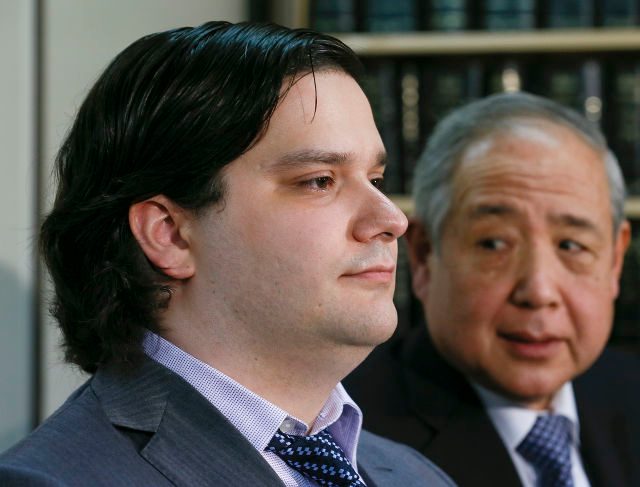SUMMARY
This is AI generated summarization, which may have errors. For context, always refer to the full article.

TOKYO, Japan (UPDATED) – Japanese prosecutors said Friday, September 11 that they have charged the head of collapsed Bitcoin exchange MtGox with embezzlement, amid fraud allegations over the disappearance of hundreds-of-millions-of-dollars-worth of the virtual currency.
The indictment of France-born Mark Karpeles, 30, comes after he was taken into police custody in Tokyo last month over the affair.
The charges are tied to allegations that Karpeles falsified data while another relates to claims he pocketed millions of dollars of Bitcoin deposits.
He has been held without formal charge for 6 weeks, as allowed under Japanese law.
Karpeles was first taken into custody over claims he fraudulently tinkered with data and transferred funds to other firms controlled by him dozens of times between 2011 and 2013.
He was later rearrested for allegedly pocketing about 321 million yen ($2.7 million) worth of Bitcoin deposits, extending an initial 3-week incarceration during which time police likely grilled him over the incident.
Bitcoins are generated by complex chains of interactions among a huge network of computers around the planet, and are not backed by any government or central bank, unlike traditional currencies.
Tokyo-based MtGox shuttered last year after admitting 850,000 coins – worth around $480 million at the time, or $387 million at current exchange rates – had disappeared from its digital vaults.
The exchange, which once said it handled around 80% of global Bitcoin transactions, filed for bankruptcy protection soon after the cyber-money went missing, leaving a trail of angry investors calling for answers.
The company initially said there was a bug in the software underpinning Bitcoins that allowed hackers to pilfer them.
Karpeles later claimed he had found some 200,000 of the lost coins in a “cold wallet” – a storage device, such as a memory stick, that is not connected to other computers.
‘Better than nothing’
But the whereabouts of the money and Karpeles’ involvement appear far from solved.
“I’m happy the police have made breakthroughs on investigating the missing fiat money, but it would be unsatisfying if after all this time all we get is a conviction for manipulated records and embezzlement only amounting to a fraction of all the money people lost,” Bitcoin investor Kim Nilsson told Agence France-Presse (AFP).
“It may be better than nothing for the people who want to see someone held responsible, but I think we should be expecting more.”
Yoshimitsu Homma, head of Japan Digital Money Association, called Karpeles’ arrest “good news”.
But “the issue is in the past for the virtual currency world itself, and more people are getting interested” in digital money, he added.
The case presented a complex challenge to Japanese police, as financial watchdogs around the world struggle to work out how to regulate digital money, which started to appear around 2009.
Investors have called on the firm’s court-appointed administrators to publicize its data so that experts around the world can help analyze what happened at MtGox.
In a recent interview with Japan’s top-selling Yomiuri newspaper, Karpeles’ mother said her “genius” son learned computer languages at age 3 and started making simple programs of his own two years later.
In 2006, Karpeles – who reportedly lived in an $11,000-a-month Tokyo penthouse – wrote on his blog that computer crime was “totally contrary to my ethical principles”.
But 4 years later, a Paris court sentenced him in absentia to a year in prison for hacking. He had come to Japan to work for a web development company in 2009 and later got involved with the Bitcoin exchange.
Backers say virtual currencies provide an efficient and anonymous way to store and transfer funds online. But critics argue the lack of legal framework governing the currency, the opaque way it is traded and its volatility make it dangerous.
Bitcoin’s reputation was also damaged when US authorities seized funds as part of an investigation into the online black market Silk Road. – Kyoko Hasegawa, AFP/Rappler.com
Add a comment
How does this make you feel?
There are no comments yet. Add your comment to start the conversation.